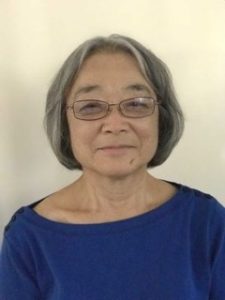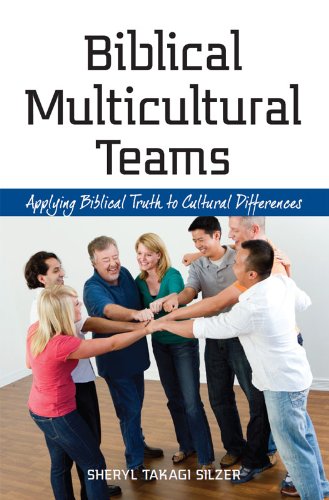As a third generation Japanese American who grew up with mainly white Americans, I thought I was thoroughly American until I served as a cross-cultural worker in Asia. In Asia I experienced a lot of cultural stress but didn’t know why. Not only was I trying to adjust to a different culture, but I was also dealing with unconscious American and Japanese cultural values. The light began to dawn when I began an intercultural study program and realized how much my Asian heritage still influenced me. Then I began to see which actions reflected American individual values and which actions reflected family values and whether they reflected biblical truth.
This series is based on my own journey of cultural self-discovery as a Japanese American working in Asia and authoring two books. The first book Biblical Multicultural Teams: Applying Biblical Truth to Cultural Differences is about my journey of cultural self-discovery; the second book Tapestry of Grace: Untangling the Cultural Complexities of Asian American Life and Ministry, co-authored with Dr. Ben Shin and written out of 20 years of teaching Asian culture at Talbot School of Theology, delves into various sources of our Asian heritage. This post is the first in the series.
When I worked in Asia as a cross-cultural worker, I assumed my cultural way of doing things was biblical. However, I experienced a lot of cross-cultural stress. It wasn’t until I was back on home leave and began a program on culture that I learned I had no clue of who I was in terms of my cultural identity.
Also, my assumption was that, since I had been a Christian for a number of years, my way of doing things was biblical. It took a while before I learned that my ways were actually cultural and my responses to cultural differences did not reflect biblical truth. I realized that, when I was in Asia and was easily upset or complained about the very ones I went to minister to, it was because I thought my way of doing things was biblical. I easily convinced myself that they were wrong, I was right, and that justified my negative emotional responses and behavior.
I learned that there are two basic cultural identities around the world: Individual Identity and Family Identity. Individual identity is based on the individual’s choice of the things they want to be known for (characteristic skill, possessions, etc.), while a family identity is something that a person is born with (name, history, reputation, place of birth, etc.).
Individual identity arises from the belief that everything is mainly physical although Christians regard the possibility of the existence of a spiritual realm. This belief is reinforced by philosophical, economic, historical, and societal differences. Later it was reinforced by industrialization, consumerism, and globalization.
Family identity arises from the belief that everything (humans, nature, supernatural realm, etc.) is spiritual as well as connected to one another, rather than separate. This belief is also reinforced by philosophical, historical, religious, and societal differences.
This difference leads to misunderstandings in every area of life based on how you learned culture from childhood. That is, how you were nurtured and disciplined to how you communicate, eat, work, worship, clean, and so on.
One of the ways I experienced stress from my individual identity as I interacted with people with a strong family identity was being expected to do everything the group did. I felt I had no individual choice so would get upset when Asian colleagues wanted me to attend every family get-together—birthdays, holidays, funerals—everything! Now I realize that they regarded me as family and wanted to include me in their activities while I was reacting out of my individual identity, my ability to decide what I do and where I go.
In what ways has your individual identity been in conflict with a family identity?
More information can be found in Tapestry of Grace: Untangling the Cultural Complexities of Asian American Life and Ministry, Ben Shin and Sheryl Takagi Sizer, 2016 chapter 7, pages 105-122 and Biblical Multicultural Teams: Applying Biblical Truth to Cultural Differences, Sheryl Takagi Silzer, 2011 chapter 2, pages 21-41.

Sheryl Takagi Silzer
Sheryl Takagi Silzer is a third generation Japanese American. She worked with Wycliffe Bible Translators in Colombia, Papua New Guinea, and Indonesia as a Bible translator. For the past twenty-five years she has worked as a multicultural consultant leading Cultural Self-Discovery workshops for sending agencies, schools, and churches around the …View Full Bio
Are you enjoying a cup of good coffee or fragrant tea while reading the latest ChinaSource post? Consider donating the cost of that “cuppa” to support our content so we can continue to serve you with the latest on Christianity in China.

